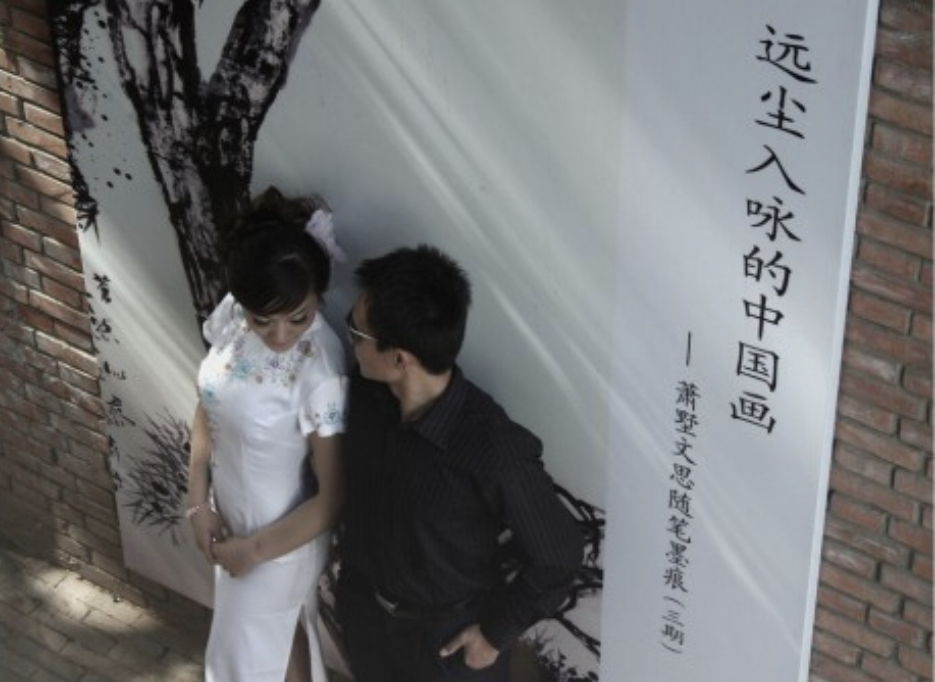学习心得
Jude, étudiant de Mandarin Edu de Suzhou
Jude, étudiant de Mandarin Edu de Suzhou
Je m'appelle Jude, j'apprends le Mandarin à Suzhou Mandarin Sch...
Jessie, étudiante à Mandarin Edu
Jessie, étudiante à Mandarin Edu
J'ai appris le Chinois presque 8 ans, je peux comprendre ce que les Chi...
Florent, étudiant à Mandarin Edu
Florent, étudiant à Mandarin Edu
J'adore Mandarin Education School de Wuxi. C'est la manière LA PLUS FA...
Le vent en langue Brad élèves
Le vent en langue Brad élèves
Je suis en train d'étudier le Chinois à Mandarin Education School. Je peux...
Jennifer, étudiante à Mandarin Edu
Jennifer, étudiante à Mandarin Edu
J'adore apprendre le Chinois à Mandarin Education School. C'est un en...
Zack, étudiant à Mandarin Edu
Zack, étudiant à Mandarin Edu
Mandarin Education School est une place très adaptée à l'apprentissage du ...
Kevin, étudiant à Mandarin Edu
Kevin, étudiant à Mandarin Edu
Mandarin Education School est un endroit excellent pour apprendre le chin...
Mandarin E-Learning
Mandarin E-Learning
Mandarin Education School offre des cours de Chinois en ligne. Cela n'a jamais été aussi facil...
法语汉语学习
...
Ajoutez notre
Identifiant Officiel
Wechat : MandarinGroup
Pour plus d'informations

0086 1866 1199 988
Sandy.Swun
519988808
Mandarin Education School
Room 405,Building 8,Maoye
Business Centre,Changjiang
No.1,New District,Wuxi, China
-
Home > >

Three days ago, the “Third Interpretation of Several Issues concerning The Marriage Law ” was published and promulgated. Just as in the past, every time there’s a modification of “The Marriage Law,” there is a flood of cynical comments and complaints, as if an ethical earthquake has struck the foundation of our marriages and families.
In fact, the only controversy about this modification lies in the seventh item: When parents purchase, at their expense, real estate for their child after he or she is married, and register the property in the name of their child, the property is recognized to be that person’s personal property; if the real estate is purchased by parents of both sides, and the property registration is in the name of one of the spouses, the ownership is in accordance with the investment share of the total of both sides’ parents.One media commentator quipped: “ Men’s parents are laughing while women’s parents are crying,” in response to the new decree. Some people say that from now on, women’s mothers, who used to require that “the boy provide a house as a prerequisite” for marrying their daughters, should now require that “no matter whose parents paid for the house, the girl’s name is to appear in the real estate registration.”
It has been known as a precious rule for urban women: a man with a car, a house, and without living parents, is an ideal partner. Now the concept packs even more punch: if the boy’s parents are both dead, the trouble that accompanies their existence won’t appear. But then of course, women and their parents need to make a lot more effort to make sure that the wife’s name will appear on the real estate certificate.
Before this modification of the Marriage Law, it was stipulated that: when one side of the parents buys real estate for their married child, unless it is clearly expressed that the right is donated to only one party, the ownership of the real estate is presumed to be jointly shared by the couple. In other words, though the new decree makes a totally different interpretation as to how the couple share their rights, particularly in the case of divorce, both laws hold the parents’ will in absolute respect.
In theory, as long as the daughter-in-law or son-in-law fulfills his or her filial piety, the law will not harm either party. Nevertheless, the change of the law reflects changes in Chinese society. For starters, like its super rapid economic development, China has also seen a skyrocketing divorce rate over the past six years. In Beijing, Shanghai and Canton, the divorce rates were 39%, 38%, and 35% respectively at the end of last year, according to Chinese official statistics.
But more generally, people used to care more about family ethics; while nowadays, people pay more attention to individual rights. A husband and a wife are above all two independent civil bodies, before they are a couple identified and connected by the marriage certificate.
In this way, individual rights are independent of the couple’s marital relationship. In some people’s eye, this is a rather cold way, even contrary to public order and public good.
But this reflects the transformation of the judicial meaning of marital law, i.e. if the marriage used to be defined from an ethical point of view, now it’s defined from a contractual perspective.
Some commentators say that the new judicial interpretation of the marital law will change Chinese people’s concepts about marriage itself, as well as the way women choose their husbands, and certain ideas about reproduction.
We should remember that the first document to be drawn up after the birth of the People’s Republic of China in 1949 was The Marriage Law, not the Constitution.
So is the change a bad thing after all? The demand that a man provide a woman with a house before he proposes is in its origin absurd anyway. Though it appeared to protect women’s rights, it in fact puts women in a vulnerable position.
Furthermore, both sexes should be equal and treat each other fairly. When parents have worked hard all their life and buy a house for their married son, it is also unfair that in the case of a divorce, their daughter-in-law could walk away one day with half of the property.
None of this might be acceptable for those who hold a romantic view of marriage. Still, it is the true meaning of the Marriage Law. Not meant to be morality, law is there to define rights. Rather than being a question of the Marriage Law, this debate is a litmus test for one’s very concept about marriage and the world.









